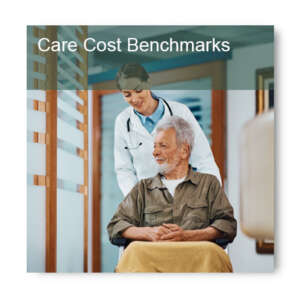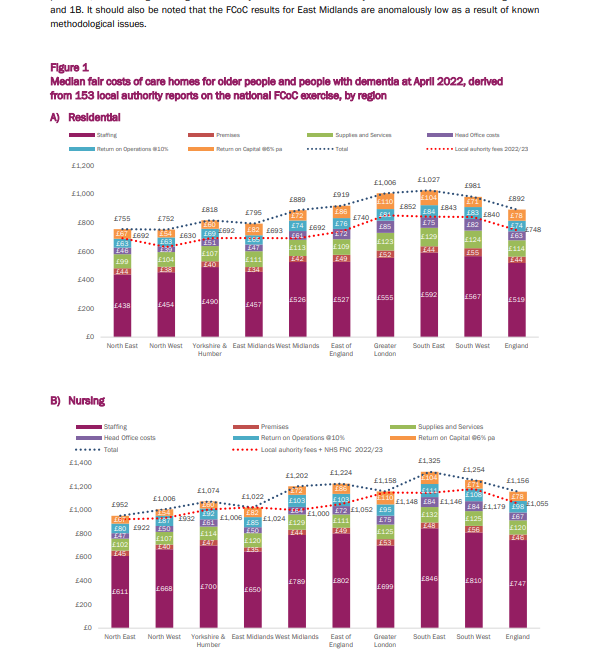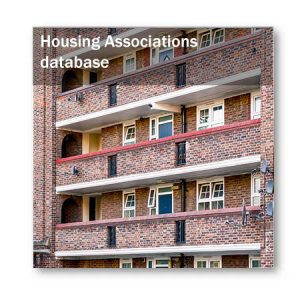Local Authorities Database Subscription

Want to know more? Our sales team can help
Call: 020 7841 0045
Email: [email protected]
45,000+ records
The Local Authority database covers all local government including Councillors, Senior and Mid-Level Management Posts and key lower level functional positions across all UK Councils. This database covers Social Care, Adult Services, Children’s Services, Health, Housing and Education as well as Police and Fire Services, plus Parks, Transport and Combined Authorities.
The structure of Local Authorities varies across the UK. England has a mixture of ‘single tier’ authorities – Unitary / Metropolitan / London Boroughs and ‘two tier’ authorities – English Country Councils and District Councils, where functions are divided between the two authority types. Wales and Scotland have a single Unitary Authority for each area.

£5,500.00 (£6,600.00 incl VAT) for 1 year
By clicking on Buy Now you are acknowledging that you have read and understood the Data Licence Agreement and agree to the terms and conditions.
You are purchasing a 12 month subscription to a dataset which is a comma separated spreadsheet (.csv). Data is updated on a weekly basis. Up-to-date downloads are accessible in your Client Dashboard on this site. Numbers below are indicative and subject to change as data is continually monitored and updated.
Breakdown of the Oscar Local Government Database
Counts and coverage is shown by the key selection areas of the database. The figures are re-calculated every 24 hours based on the latest research.
Local government organisation types breakdown
Local government categories and functions breakdown
Most senior ‘non executive’ contact
Reporting directly to the Chairman, second most senior ‘non executive’ contact
The most senior Executive Contact
Some organisations have specific Deputy Chief Officer posts, distinct to other Top Level Directors – e.g. Deputy Chief Constables in Police Forces
Most senior Administrative contact. Specific and in some cases statutory post
Senior Director who reports directly to the Chief Officer
Assistant Director or Head of Service that reports to a Director or equivalent
Heads of Service or Managers that report directly to ‘Second Tier’ employees – i.e. are two levels below ‘Top/Director’ Level
Responsible for the implementation and compliance with of the Government’s “Best Value” requirements. This approach is the evaluation of ”services” based on all merits, not just cost.
Lead contact for the organisation dealing with issues and planning surrounding the UK leaving the EU
Central management of administrative support services provided for other departments.
Management of the internal day-to-day cleaning of the organisations buildings.
Involves advising/planning in connection with strategic issues and developing systematic processes to enable, general organisational development, expenditure programmes and services to be evaluated and optimised.
Responsible for ensuring services are provided efficiently and effectively to the public. This is likely to include points of direct contact with the organisation.
Manage the register of electors within Local Authorities
Responsible for the ”publication scheme” and facilitating public access to all types of information held by the organisation
Managing and running Councillors rooms, bars and restaurants.
Responsible for monitoring and ensuring both the elected councillors and employed officers within Local Government are working legally and ethically
Strategic role concerned with service delivery from a logistical perspective. Often involves co-ordinating partnerships with other organisations.
Internal provision of printing services for the organisiation
Dealing with enquiries about physical proposals (road improvements, new schools, etc.) which would affect a specific curtilage (area of land). This is part of all house sales processes.
Monitoring the services provided by the organisation/department against predefined standards.
Responsible for ensuring policies are effective and monitoring openness and fairness with the decision making of elected Councillors and the management of the Council.
Provide support in running the department, could be information management/strategic development/co-ordination of resources/paperwork etc
Usually based at other/satellite offices responsible for service provision in a defined area
Primarily involved with helping adults live at home through advice, guidance and provision of support. Often focused on the physical and mentally handicapped and elderly.
Responsible for statutory assessment and supervision of adult offenders (aged 16 and over) in Local Govt. Other roles around Criminal Justice in Central Govt
Provide support for adults with all forms of Learning Difficulties
Development of strategies for the provision of Adult Education via community schools/neighbourhood centres/community centres/adult education College and co-ordination with external providers for education and training schemes, such as ”Learn Direct”
Responsible for the management of the organisations/departments own care facilities – Support Centres, Care Homes etc
Support people with Mental Health problems. Often Local Authorities work jointly with NHS Trusts and voluntary and charity organisations.
Responsible for assessing and providing information, advice and support for people coping with disabilities at home, helping them to be more independent.
Responsible for helping the elderly through support at home (assessments/home care/home adaptations etc), supporting older people returning from hospital and organising Day Services and Care Homes.
Strategic role concerned with service delivery of Adult Services/Social Care from a logistical perspective.
The Director or equivalent of the Department responsible for Adult Social Care – this person has overall responsibility for all areas of service provision.
Responsible for helping people between 18 and 64 with Physical Disabilities to live either at home via home care or provide suitable accommodation – this may be supported living or a Residential/Nursing Home.
Responsible for the strategic development of Adult Social Care service provision
Monitoring the services provided by the department, may involve dealing with complaints
Responsible for the collation and strategic use of data and other information collected regarding the departments services and the public.
Responsible for all or some areas of Adult Social Care/Services
Provide advice, guidance and support for people with drug and alcohol dependencies
The Chairperson of the Health and Wellbeing Board
Member of the Health and Wellbeing Board
Person who is not employed as part of management and oversees the running of the organisation
Chairperson of the Police and Crime Commissioner PCP Board
Elected/Councillor Member of Police and Crime Commissioner PCP Board
Non Employed Member of the Police and Crime Commissioner PCP Board
Undertake in-house architectural work and manage work outsourced to private practices and consultants.
The contractor side within Local Authorities, providing various maintenance and building functions, often based within council depots. Regularly referred to as ”Neighbourhood Services”
Provide engineering and building maintenance services in relation to the organisations buildings, heating, ventilation, electrical and plumbing services.
In Councils that have opted for an Executive/Cabinet System. Elected person with responsibility for Adult Health and Social Care
In Councils that have opted for an Executive/Cabinet System. Elected person with responsibility for Audit
Often the Leader of the Council. The most senior person within the cabinet and who officially appoints the members of the cabinet
Often the Deputy Leader of the Council. The most second senior person within the cabinet.
In Councils that have opted for an Executive/Cabinet System. Elected person with responsibility for Children’s Education, Health and Social Care
In Councils that have opted for an Executive/Cabinet System. Elected person with responsibility for Climate Strategy
In Councils that have opted for an Executive/Cabinet System. Elected person with responsibility for Communications/PR
In Councils that have opted for an Executive/Cabinet System. Elected person with responsibility for Community Social Development
In Councils that have opted for an Executive/Cabinet System. Elected person with responsibility for Community/Public Safety
In Councils that have opted for an Executive/Cabinet System. Elected person with responsibility for Museums, Libraries and other Cultural Services
In Councils that have opted for an Executive/Cabinet System. Elected person with responsibility for implementing online/automated ways of providing public services utilising multi-media technologies
In Councils that have opted for an Executive/Cabinet System. Elected person with responsibility for Employment/Skills
In Councils that have opted for an Executive/Cabinet System. Elected person with responsibility for issues concerning the Local Environment – may include Planning, Waste, Cleansing, Sustainability etc
In Councils that have opted for an Executive/Cabinet System. Elected person with responsibility for Environmental Health
In Councils that have opted for an Executive/Cabinet System. Elected person with responsibility for Equal Opps/Women’s Rights
In Councils that have opted for an Executive/Cabinet System. Elected person with responsibility for Estates, Facilities and Property owned by the Council
In Councils that have opted for an Executive/Cabinet System. Elected person with responsibility for Finance and Financial Management of the Council
In Councils that have opted for an Executive/Cabinet System. Elected person with responsibility for the Local Fire Service
In Councils that have opted for an Executive/Cabinet System. Elected person with responsibility for Geological Disposal
In Councils that have opted for an Executive/Cabinet System. Elected person with responsibility for Public Health
In Councils that have opted for an Executive/Cabinet System. Elected person with responsibility for Highways Planning, Maintenance and Traffic Management
In Councils that have opted for an Executive/Cabinet System. Elected person with responsibility for Housing, Housing Management, Provision and Homelessness
In Councils that have opted for an Executive/Cabinet System. Elected person with responsibility for the management of Human Resources/Personnel within the Council
In Councils that have opted for an Executive/Cabinet System. Elected person with responsibility for Social and Community Inclusion
In Councils that have opted for an Executive/Cabinet System. Elected person with responsibility for the management and strategy of the Council’s IT and ICT systems
In Councils that have opted for an Executive/Cabinet System. Elected person with responsibility for Adult Lifelong Learning
In Councils that have opted for an Executive/Cabinet System. Elected person with responsibility for Neighbourhood Services
In Councils that have opted for an Executive/Cabinet System. Elected person with responsibility for the care and support of older people
In Councils that have opted for an Executive/Cabinet System. Elected person with responsibility for the strategic and policies connected with the development of the organisation
In Councils that have opted for an Executive/Cabinet System. Elected person with other/non specified responsibilities
In Councils that have opted for an Executive/Cabinet System. Elected person with responsibility for the development, management and assessment of Partnerships with external organisations
In Councils that have opted for an Executive/Cabinet System. Elected person with responsibility for monitoring the performance of the Council, including from quality and financial perspectives
In Councils that have opted for an Executive/Cabinet System. Elected person with responsibility for the processing of planning applications, taking account of the council policies and environmental considerations
In Councils that have opted for an Executive/Cabinet System. Elected person with responsibility for Policies and Strategies connected with the improvement of the Council
In Councils that have opted for an Executive/Cabinet System. Elected person with responsibility for Recreation & Leisure Services, including encouraging Sports and managing Leisure Centres
In Councils that have opted for an Executive/Cabinet System. Elected person with responsibility for Economic Regeneration within the Councils area
In Councils that have opted for an Executive/Cabinet System. Elected person with responsibility for the management and deployment of Council Resources
In Councils that have opted for an Executive/Cabinet System. Elected person with responsibility for protecting the public/consumers by ensuring businesses are trading fairly
In Councils that have opted for an Executive/Cabinet System. Elected person with responsibility for Transport Planning and Strategy, including Public Transport
In Councils that have opted for an Executive/Cabinet System. Elected person with responsibility for Waste Collection, Management, Disposal and Recycling
In Councils that have opted for an Executive/Cabinet System. Elected person with responsibility for strategies around and services to Young People
Provide support in running the department, could be Information Management/Strategic Development/Co-ordination of Resources/Paperwork etc
Usually based at other/satellite offices responsible for child social care service provision in a defined area
Responsible for the assessment and improvement of the literacy of children within state schools.
Financial support for students within Education (including Further Education) – includes grants for clothes/travel/food etc
Responsible for monitoring the quality of Education provided by the department and developing new and better ways to provide services.
Assessment and support of families to ensure the health and welfare of children and young people
Helping Children who are unable to be with their own parents though assessment of suitable people for adoption (taking on a child full time) and fostering (looking after a child on behalf of a Local Authority). This may include advice, support and financ
Responsible for the management of the organisations/departments own care facilities
Responsible for assessing and providing information, advice and support for young people coping with disabilities at home, helping them to be more independent.
Responsible for a non specified element of the departments/schools education services
The Director or equivalent of the Department responsible for Childrens Education and Social Care – in most Local Authorities, Education and Childrens Social Care all fall within one Department
Assessment of need and support at home (via home alterations/equipment/meals/visits etc) and via day/respite/nursing and residential care.
Responsible for the strategic development of Childrens Services
Provide information and advice to parents regarding nurseries/playgroups and childcare. Often includes support and training for providers of these services.
Statutory requirement for Local Authorities to assess and provide support for children where they have been identified as having special educational needs (SEN).
Indentify and support those children that have problems with accessing education – eg physical disabilities or medical needs.
Monitoring the services provided by the department, may involve dealing with complaints
Responsible for the collation and strategic use of data and other information collected regarding the departments services and the public.
Concerned with offering and allocating places within state schools for children up to 16 – including dealing with appeals and statuary responsibilities
Responsible for planning and co-ordinating transport to get children to school though ‘travel plans’ – may include promotion of green/healthy alternatives – eg cycling/walking.
Visiting schools to report on their level of service/education. Done by ESTYN (Wales) HMIE (Scotland) OFSTED (England). These reports may be followed up by inspections by the Local Authorities.
Responsible for all/some areas of Children’s Social Care
Co-ordinating the support of children who have some form of learning difficulty and require additional help learning. All Schools have a Special Needs Co-ordinator (SENCO) and help may be provided through extra or different lessons
Develop strategies to reduce alcohol and drug usage/dependency. Including through intervention, education and awareness raising.
Contacts in Local Government supporting and providing Education for Children and Young People in Care
Provide advice and support to schools, children their families where there are social or emotional problems affecting school attendance or education in general
Service provided by Councils/Police/Courts and the Probation Service. Developing strategies to help young people avoid breaking the law, or repeating offences.
Co-ordinating the organisations call/contact centre – used to deal with inbound enquiries from the Public for common services – Benefits/Waste Management/Environmental Health etc
Promoting healthier lifestyles to the public, including advise and support on Diet, Exercise, Alcohol and Tobacco control etc
Promoting the image and services provided by the organisation
Elected Councillor within Local Government working for both a County and District Council
Elected Councillor within Local Government working for both a District and County Council
Investment and planning around providing inclusive access to the internet and IT and the provision of broadband and high speed internet connections
Responsible for the transferred services from Connexions and helping young people find appropriate Education and Training for the workplace and to connect them with employers.
The development of economic policies and related action programmes which aim to create employment, attract businesses into the area and provide training.
Responsible for fostering and developing Economic Growth through Business and Community Support via guidance, financial incentives and investment
Overseeing and management of primarily local authority owned industrial estates and property.
Planning for and co-ordination of emergency services and related services to deal with disasters and major problems.
Contacts working within the three Emergency Services
A few County Councils operate the local fire service. In most areas a Fire Authority covering an area larger than a county operates the service.
Responsible for the classification and management of contaminated land and associated issues
Responsible for the management of the Countryside, including the conservation of wildlife, ecology, historical and natural resources.
Undertaking all the environmental health functions laid down by statute.
Responsible for the inspection of businesses preparing, manufacturing, catering, or retailing of food. May also provide some licenses.
The top contact for the environment department – primarily within Local Authorities
Responsible for developing strategies to deal with local flood risks. Includes liaising with other departments such as Emergency Planning and external bodies such as the Environment Agency.
Officer or Elected Representative in Councils involved witht he planning around the the geological disposal of hazardous or nuclear waste
Development of environmental policies and programmes for in-house action and application to services provided by the authority and more widely.
Developing strategies to promote the benefits of recycling to the public and into schools.
Domestic and industrial collection. Often limited to managing contracts with private companies and dealing with the public.
Management and operation of incinerators, tipping sites and offshore disposal.
Dealing with the maintenance of piped sewerage systems. May be restricted to passing on enquiries as sewerage systems are often the responsibility of private water companies.
Public health function, including cleaning roads, subways, gutters and collecting litter
Responsible for developing and improving the ”pedestrian environment” – covers the fixtures and fittings that facilitate its use – bus shelters/signage/planting etc
In smaller Councils that have opted for an Committee System. Elected person who Chairs the Committee with responsibility for Adult Health and Social Care
In smaller Councils that have opted for an Committee System. Elected person who Chairs the Committee with responsibility for Audit
In smaller Councils that have opted for an Committee System. Elected person who Chairs the Committee with responsibility for Children’s Health and Social Care
In smaller Councils that have opted for an Committee System. Elected person who Chairs the Committee with responsibility for Climate Strategy
In smaller Councils that have opted for an Committee System. Elected person who Chairs the Committee with responsibility for Communications/PR
In smaller Councils that have opted for an Committee System. Elected person who Chairs the Committee with responsibility for Community Social Development
In smaller Councils that have opted for an Committee System. Elected person who Chairs the Committee with responsibility for Community/Public Safety
In smaller Councils that have opted for an Committee System. Elected person who Chairs the Committee with responsibility for Museums, Libraries and other Cultural Services
In smaller Councils that have opted for an Committee System. Elected person who Chairs the Committee with responsibility for implementing online/automated ways of providing public services utilising multi-media technologies
In smaller Councils that have opted for an Committee System. Elected person who Chairs the Committee with responsibility for Employment/Skills
In smaller Councils that have opted for an Committee System. Elected person who Chairs the Committee with responsibility for issues concerning the Local Environment – may include Planning, Waste, Cleansing, Sustainability etc
In smaller Councils that have opted for an Committee System. Elected person who Chairs the Committee with responsibility for Environmental Health
In smaller Councils that have opted for an Committee System. Elected person who Chairs the Committee with responsibility for Equal Opps/Women’s Rights
In smaller Councils that have opted for an Committee System. Elected person who Chairs the Committee with responsibility for Estates, Facilities and Property owned by the Council
In smaller Councils that have opted for an Committee System. Elected person who Chairs the Committee with responsibility for Finance and Financial Management of the Council
In smaller Councils that have opted for an Committee System. Elected person who Chairs the Committee with responsibility for the Local Fire Service
In smaller Councils that have opted for an Committee System. Elected person who Chairs the Committee with responsibility for Public Health
In smaller Councils that have opted for an Committee System. Elected person who Chairs the Committee with responsibility for Highways Planning, Maintenance and Traffic Management
In smaller Councils that have opted for an Committee System. Elected person who Chairs the Committee with responsibility for Housing, Housing Management, Provision and Homelessness
In smaller Councils that have opted for an Committee System. Elected person who Chairs the Committee with responsibility for the management of Human Resources/Personnel within the Council
In smaller Councils that have opted for an Committee System. Elected person who Chairs the Committee with responsibility for Social and Community Inclusion
In smaller Councils that have opted for an Committee System. Elected person who Chairs the Committee with responsibility for the management and strategy of the Council’s IT and ICT systems
In smaller Councils that have opted for an Committee System. Elected person who Chairs the Committee with responsibility for








